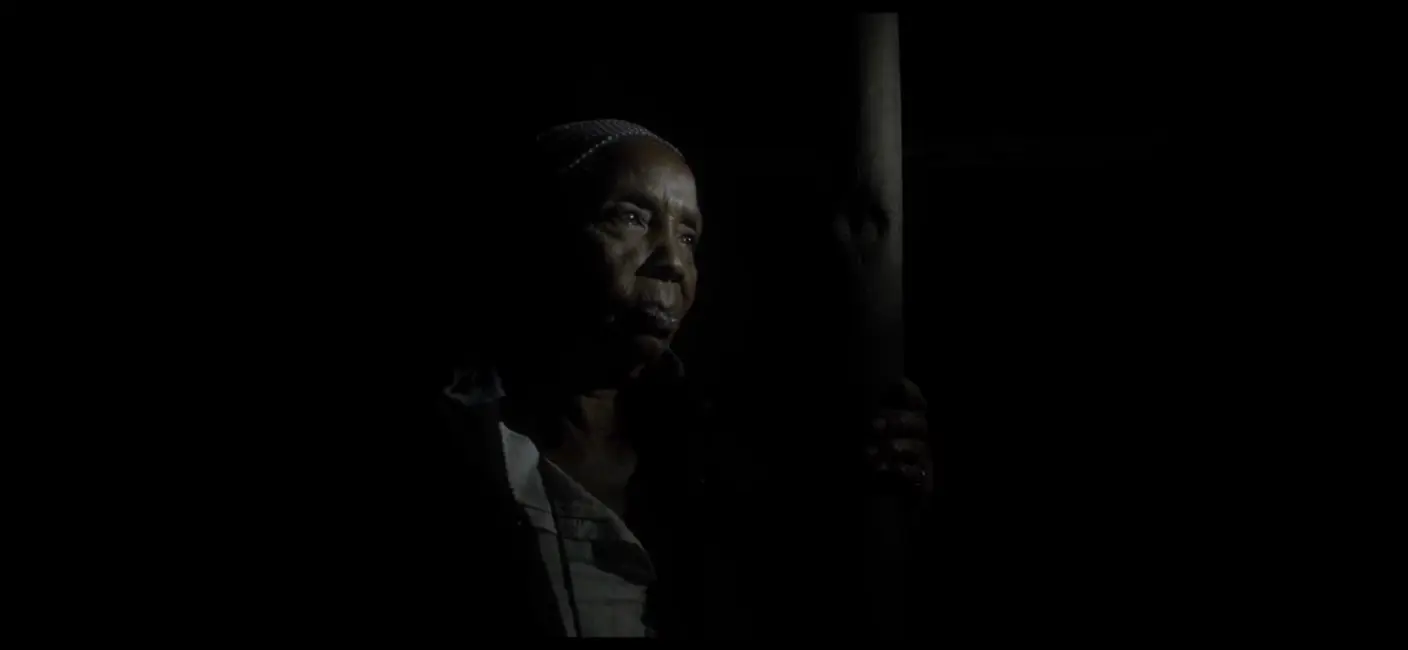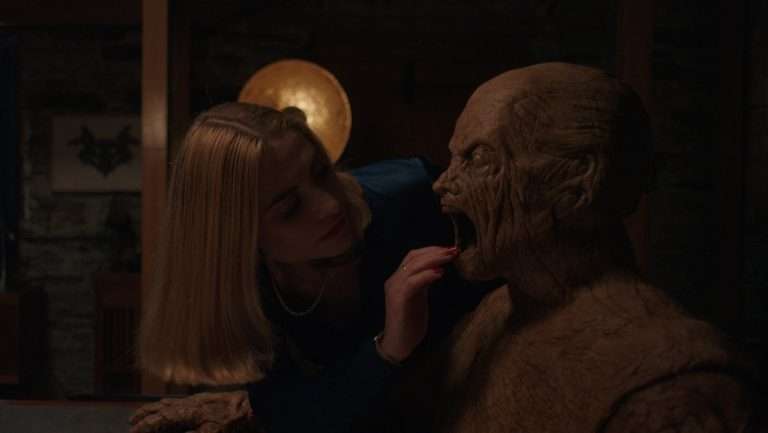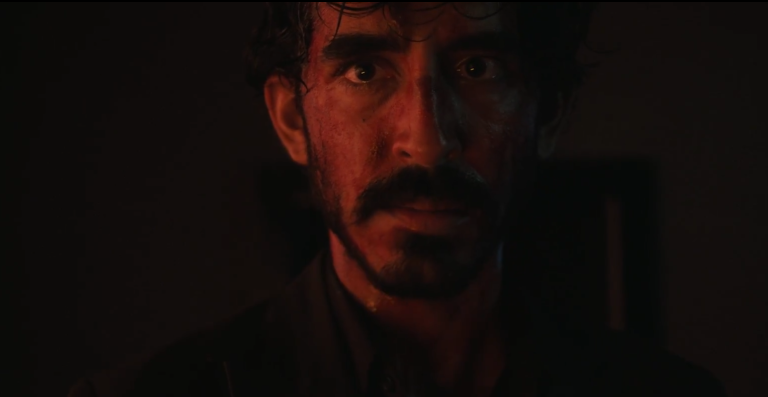The trauma and pain of having lived through the savagery of war is so powerful that it leaves its imprint on several generations down the line. Even if one seeks to escape it, the past keeps its invisible stranglehold firm on the war’s survivors. It is a peculiar juxtaposition because the markers of it are simultaneously being forced into erasing themselves. Through his film, “The Nights Still Smell of Gunpowder,” Inadelso Cossa forages for remnants of a traumatic ancestral and national past.
It’s a restorative act that tries to make sense of the vast, rippling impact of history on himself, the present selves of his widowed grandmother, and the locals in his native village. It’s a fight against oblivion that also acknowledges the immense courage and effort it takes to re-confront the horrors of the past. The film gestures to fiercely protect and honor those difficult, fraught memories, for they are the final records of repression. Everything else will be otherwise swept away. The Nights Still Smell of Gunpowder” is a scalding appeal for restitution and recuperation of memory that rails against a mere, callous burial of historic injustice.
Between 1977 and 1992, the civil war that raged through Mozambique after its independence plunged the land into heightened paranoia and utter instability. Civilians were trapped in the bloody clashes between the troops and rebels. But as Macuacua, an ex-rebel past his prime who prominently features in the film, admits, they ultimately lost track of what they were fighting for as it got drawn out. Sanity and shelter became wavering things, prone to destruction at any moment.
Cossa evokes the ghostly atmosphere of his village at night, where the pure silence is punctuated by the brutal wartime memories. The sheer desolation of the place is richly suggestive of a sadness that hangs heavy in the air. It’s a place that has witnessed an extraordinary excess of violence, chaos, and families being ripped apart with loss, entirely crushing the once-vibrant community that existed. Through the snippets of archival footage, the village establishes its pre-war past as one filled with collective joy that was quickly leached off with all the carnage. Villages were scorched. Civilians scampered for their lives, spending entire days in hiding. When reassured they could return to their village, the troops promising safety were nowhere to be found, with the rebels going out massacring. Terror was a constant.

A place that could have thrived if it was left to itself was forced into absolute mayhem. Cossa’s grandparents’ shop in the village faced a persistent threat from colonial business, yet it discreetly soldiered on. They could have carved out a stable, solid life if only there had been no such intervention as the war that turned it upside down. Now, her memories are fading as Cossa nudges her to recall specifics surrounding his grandfather’s death. While she is resigned to fate, his interrogation seeks to provoke her against such mute submission and clamping down on her pain.
By his inquisitive insertion, he urges her to preserve what she is increasingly forgetting. After her husband’s death, the rite of widowhood compelled her to bury his objects and tools. The manner in which Cossa films her at night almost makes her seem a peripheral, hovering entity who can just disappear into the dark. The ex-rebel evades questions about his experiences, choosing to retreat into the wilderness. The filmmaker goes searching into these silences, plumbing the larger mood of denial.
Are we prepared to reconcile with the past? Cossa movingly asks. The people he foregrounds show a readiness of “will to belong to the present.” One of the local women who occupies a central role in the film, and for good reason, displays generosity and empathy as she helps the tormented ex-rebel, whom she is romantically entwined with, to be kinder to himself. She may have suffered tremendously on account of the actions committed by the rebels back in the day, but her understanding of how much they may have been coerced into what they did and an entreaty for harmony is vital to the film’s spirit and message. Even if the heavily concerted atmospherics tend to lose their shine after a point, this is a piercingly important film.






![Mad God [2021]: ‘Locarno’ Review – A Bizarre, Surrealist Cinematic Experience](https://79468c92.delivery.rocketcdn.me/wp-content/uploads/2021/08/Mad-God-768x576.jpg)

